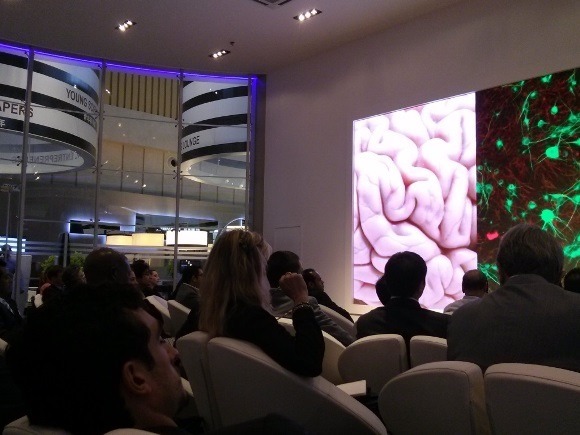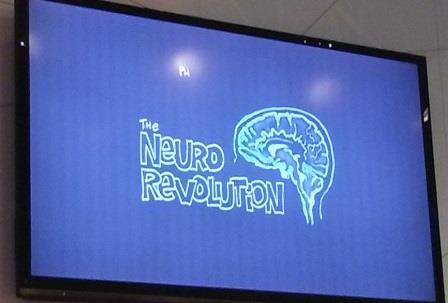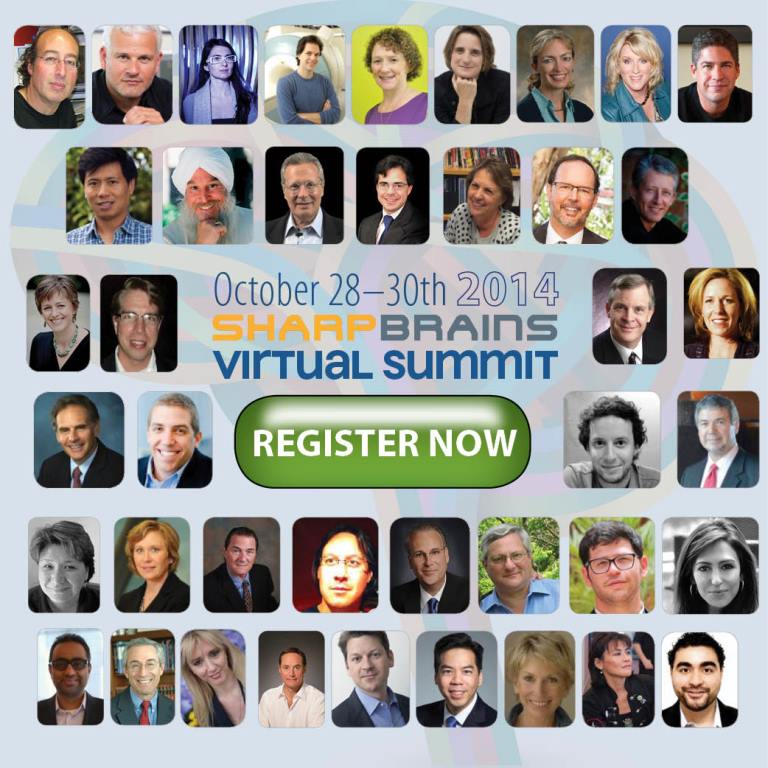10 Ways To Improve Health & Well-being Based On Latest Non-Invasive Neurotechnologies
 —
—
Last month I had the fortune to join over 1,900 pioneers from 90 countries at the World Economic Forum’s Annual Meeting in Tianjin, China, to discuss how innovation can improve the state of the world.
Throughout hundreds of panels, workshops, private meetings and social gatherings, we examined how to deal with climate change, how to invest in public infrastructure, how to better regulate financial services, and dozens of other pressing topics. In addressing these issues, everyone — independent of nationality or discipline – brought to the table our most precious asset: the amazing Human Brain.
During stimulating and captivating sessions we explored the new frontiers in neuroscience. A prominent focus was around how emerging neurotechnologies, such as those enabled by the White House BRAIN Initiative, will help detect and record brain activity in unprecedented detail and, therefore, revolutionize our knowledge of the brain and the mind.
 In parallel, high-ranking government officials and health experts convened to brainstorm about how to “maximize healthy life years.” The conversation revolved around physical health and promoting positive lifestyles, but was largely silent on the subjects of cognitive or emotional health. The brain, that key asset everyone needs to learn, problem-solve and make good-decisions, and the associated cognitive neurosciences where so much progress has occurred over the last two decades, are still largely absent from the health agenda.
In parallel, high-ranking government officials and health experts convened to brainstorm about how to “maximize healthy life years.” The conversation revolved around physical health and promoting positive lifestyles, but was largely silent on the subjects of cognitive or emotional health. The brain, that key asset everyone needs to learn, problem-solve and make good-decisions, and the associated cognitive neurosciences where so much progress has occurred over the last two decades, are still largely absent from the health agenda.
What if existing brain research and non-invasive neurotechnologies could be applied to improve public health and well-being? How can we begin building better bridges between existing science and technologies and the real-world health challenges we’re facing?
Good news is that a transformation is already underway, albeit under the radar. As William Gibson eloquently said, “The future is already here — it’s just not very evenly distributed.” Individuals and institutions worldwide are expected to spend over $1.3 billion in 2014 in web-based, mobile and biometrics-based solutions to assess and enhance brain function. Growth is poised to continue, fueled by emerging mobile and non-invasive neurotechnologies, and by consumer and patient demands for self-driven, proactive brain care. For example, 83% of surveyed early-adopters agree that “adults of all ages should take charge of their own brain fitness, without waiting for their doctors to tell them to” and “would personally take a brief assessment every year as an annual mental check-up.”
 These are 10 priorities to consider, if we want to improve health & well-being based on the latest neuroscience and non-invasive neurotechnology:
These are 10 priorities to consider, if we want to improve health & well-being based on the latest neuroscience and non-invasive neurotechnology:
- Transform the mental health framework, from a constellation of diagnoses such as anxiety, depression, ADHD…to the identification and strengthening of the specific brain circuits (“cells that fire together wire together”) that may be deficient. This is what the Research Domain Criteria framework, put forth by the National Institute of Mental Health, is starting to do.
- Bring meditative practices to the mainstream, via school-based and corporate programs, and leveraging relatively-inexpensive biometric systems
- Coopt pervasive activities, such as playing videogames…but in a way that ensures they have a beneficial effect, such as with cognitive training games specifically designed to prolong cognitive vitality as we age
- Offer web-based psychotherapies as first-line interventions for depression and anxiety (and probably insomnia), as recommended by the UK’s National Institute for Health and Care Excellence.
- Monitor the negative cognitive and emotional side-effects from a variety of medical interventions, to ensure unintentional effects from the cure are not more afflictive than the treated person’s original condition. Given that the US Food and Drug Administration just cleared an innovative mobile brain health assessment, what prevents wider use of baseline assessments and active monitoring of cognition as an individual begins a particular treatment program or medication?
- Combine pharmacological interventions (bottom-up) with cognitive training (top-down) such as the CogniFit – Bayer partnership for patients with Multiple Sclerosis
- Update regulatory frameworks to facilitate safe adoption of consumer-facing neurotechnologies. Start-up Thync just raised $13 million to market transcranial stimulation in 2015, helping users “alter their state of mind.” That’s not a medical claim per se…but does the technology need to be regulated as a medical device?
- Invest more research dollars to fine-tune brain stimulation methods, such as transcranial magnetic stimulation, to enable truly personalized medicine.
- Adopt big data research models, such as the newly-announced UCSF Brain Health Registry, to leapfrog the existing small clinical trial model and move us closer towards delivering personalized, integrated brain care.
- And, last but certainly not least, promote physical exercise and bilingual education in our schools, and reduce drop-out rates. Improving and enriching our schools is perhaps the most powerful social intervention (and the original non-invasive neurotechnology) to build lifelong brain reserve and delay problems brought by cognitive aging and dementia.
If we want every citizen to adopt more positive lifestyles, especially as we face longer and more demanding lives, it is imperative that we better empower and equip ourselves with the right cognitive and emotional resources and tools. Initiatives such as those above are a significant start to view and treat the human brain as an asset to invest in across the entire human lifespan, and to truly maximize years of healthy, functional and meaningful living.
Let’s strengthen existing bridges — and build needed new ones — to improve our collective health and well-being.
– Alvaro Fernandez, named a Young Global Leader by the World Economic Forum , is the Producer of the 2014 SharpBrains Virtual Summit (October 28–30th, 2014), designed to discuss these priorities, and many more.



